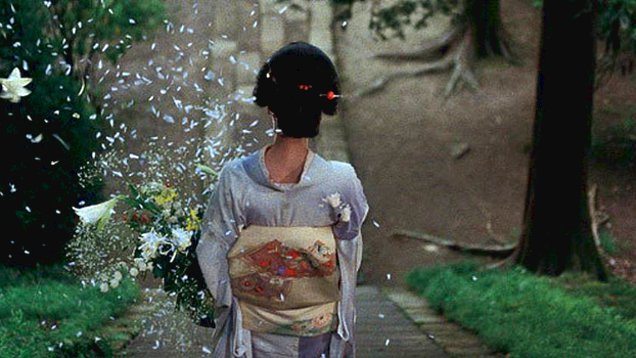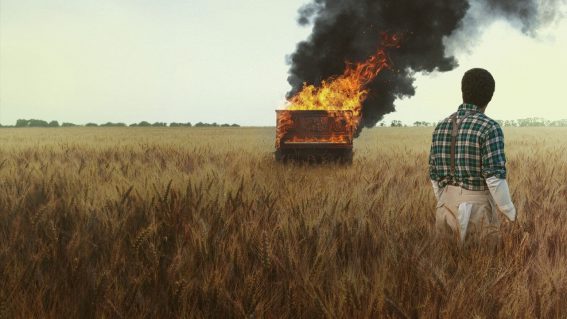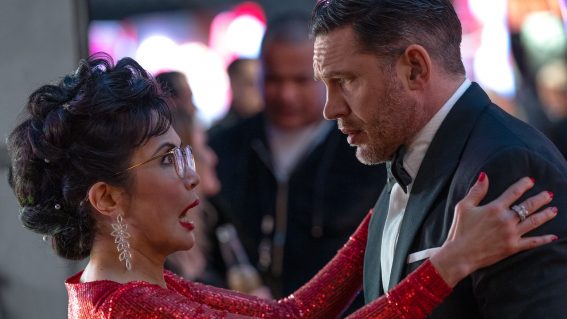The Japanese Film Festival will screen classics for free in Sydney, Melbourne and Canberra

Japanese cinema has had a huge impact on filmmaking across the world, boasting many great artists including Akira Kurosawa, Hayao Miyazaki and Yasujiro Ozu.
This year’s Japanese Film Festival will celebrate Japan’s impact on international film by screening a range of Japanese classics in its Passion & Obsession program.
The full program will screen in Sydney, with an abridged version in Melbourne and Canberra. It aspires to showcase “influential works from cinematic masters from the Japanese Golden Age and New Wave.”
These include films about star-crossed loves in the Meiji and films about early feminists fighting societal norms.
The classics program arrives in Sydney at the Art Gallery of New South Wales (Oct 3 – 31), Melbourne at the Australian Centre for the Moving Image (Nov 23 – Dec 2) and Canberra at the National Film and Sound Archive (Sept 29 – 30).
Festival Program Coordinator Alison Groves says the Passion & Obsession films “offer us fascinating glimpses into the many different faces of Japan throughout the decades.”
Oh, and admission is free – so you’ve got no excuse for not tagging along. For further information consult the festival website.
Here are the classic films playing:
The Pornographers – Cannes Palme d’Or-winning filmmaker Shohei Imamura’s darkly funny adaptation of Akiyuki Nosaka’s novel follows a pornographer hustling to keep his business alive amidst Japan’s post-war economic boom, despite threats from the police, local gangsters and his own family.
Nihonbashi – Cannes Jury Prize-winning Japanese master Kon Ichikawa’s first colour film follows two geishas in a cut-throat competition to reign over Nihonbashi, Tokyo’s premier geisha district.
Okoto and Sasuke – Featuring prolific star of the Japanese Golden Age Kinuyo Tanaka, this captivating melodrama follows the love between a blind koto (Japanese lap guitar) virtuoso and her devoted manservant, from Yasujirō Shimazu – one of the major creators of the shōshimingeki (lower-middle-class) genre.
Manji: The Goddess of Mercy – Adapted from Junichiro Tanizaki’s novel Quicksand, maverick film director Yasuzo Masumura’s queer melodrama follows the intriguing love affair between two society ladies.
Kagero-za (Heat Haze Theatre) – Set in the Taisho Era (1912-1926), Japanese auteur Seijun Suzuki’s multi-award-winning adaptation of Kyoka Izumi’s Gothic-tinged ghost story follows a playwright who meets a beautiful woman he suspects is the ghost of his patron’s deceased wife.
A Geisha – This poignant drama from multiple Venice Silver Lion-winning filmmaker Kenji Mizoguchi follows an aspiring geisha and her established mentor fighting to uphold their dignity amidst the economic pressures of post-war Kyoto.
Juvenile Jungle (Crazed Fruit) – Novelist-turned-politician Shintaro Ishihara’s controversial portrayal of the sexual revolution of disillusioned post-war youth follows two brothers who fall for the same woman. Exploding into a cultural phenomenon soon after its release, this seminal Sun Tribe classic stars the late Masahiko Tsugawa (Death Note).
The Affair – Prolific actress Mariko Okada (Akitsu Springs) stars in her husband Yoshishige Yoshida’s Japanese New Wave depiction of female characters defining their own sexuality, about a young woman’s illicit affair with her deceased mother’s lover.








